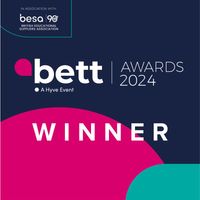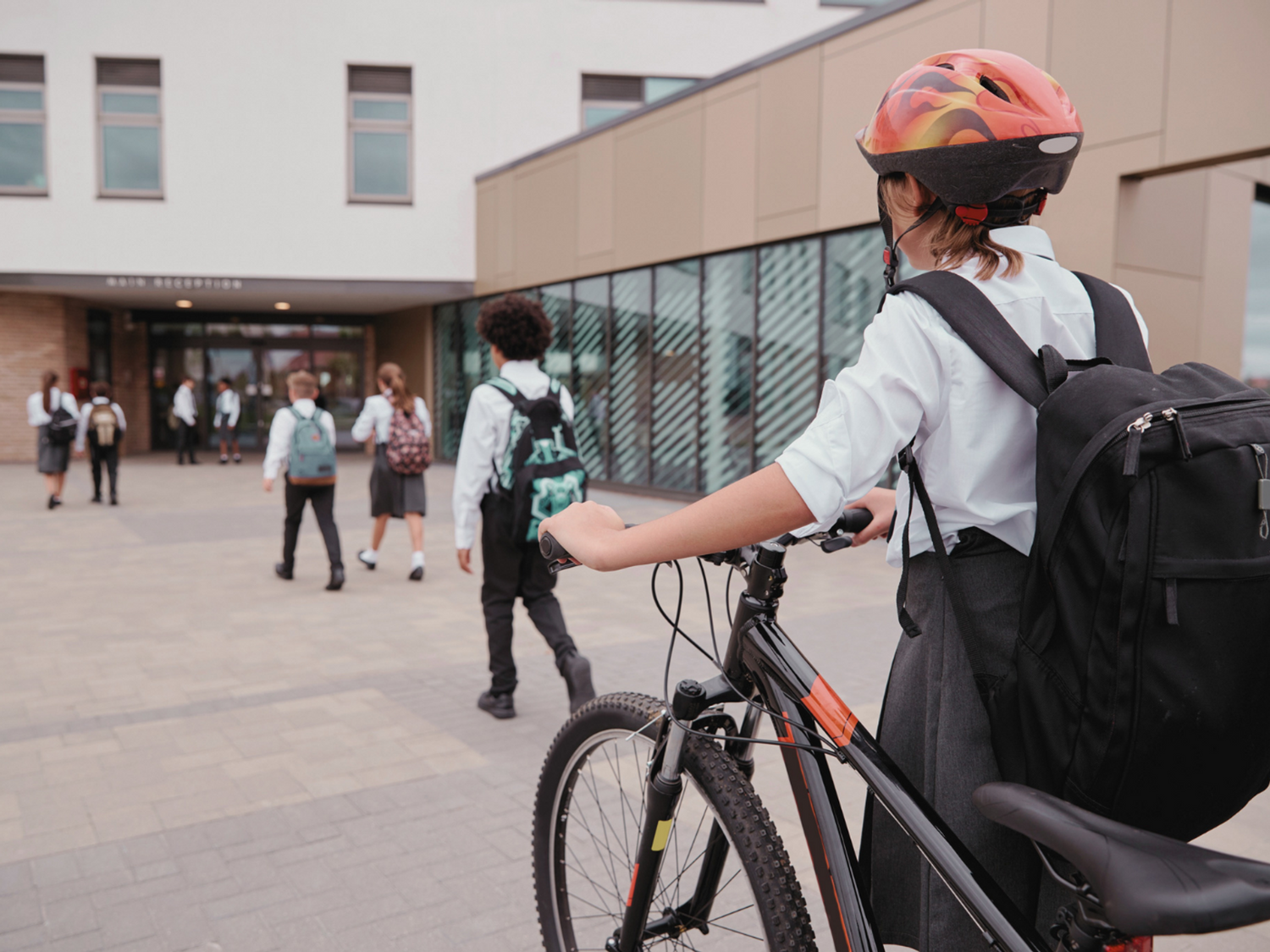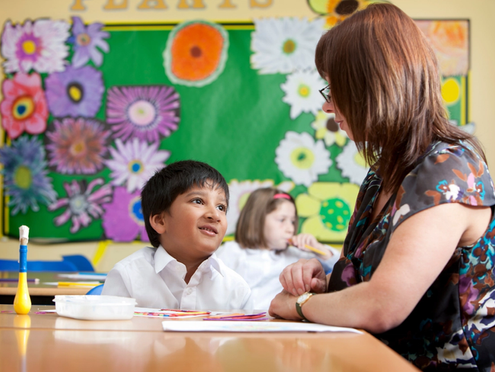In 2020, the Oxford University Press published a report into the ‘Language Leap’ from primary school to secondary school. The results were revealing: the step up is dramatic. As many schools start preparing for transition, we explore how curriculum language demands change between Primary and Secondary, how that impacts learners and what Bedrock can do to support the process.
As a learner progresses through school, they need to be adding at least 3,000 new words to their vocabulary per year (Beck, McKeown & Kucan, 2002; Nagy, 1980 & 1986) if they are to keep up with the increasingly challenging requirements of academic texts. If a learner’s vocabulary is growing at a slower rate, they will find understanding school textbooks and classroom discourse more and more difficult as they progress through school.
Against this background of regular increases in language difficulty, the step up in the language demands from primary to secondary school is even more stark. Research conducted by Professor Alice Deignan from the University of Leeds shows that a learner encounters up to 3 or 4 times as many words each day in secondary school than they did in primary school.
The Oxford Language Report (2020) found that nine out of ten teachers believed that the transition between primary and secondary school highlighted “vocabulary issues, with the variety, quantity and purpose of language dramatically shifting.”
What's driving the shift in the language landscape?
Firstly, it’s about curriculum content. We accept that in some curriculum areas, if not all, subject matter becomes increasingly complex at KS3. In a 2021 article, Quigley provides an important reminder that, in reference to English, “there is a great deal of sophisticated language being learnt in key stage 2,” but unarguably, in the depth and breadth of curriculum content across the school, there is a shift.
In the geography curriculum at KS2, for instance, learners have to “use basic geographical vocabulary to refer to key physical features including: beach, cliff, coast…” whereas in KS3, learners have to understand the “key processes in: physical geography relating to … hydrology and coasts.”
As we would expect, there’s an increase in complexity and therefore a shift in language. As Fang (2006) writes, “Learning the language is part of learning the concepts, as the concepts are constructed through language.”
As learners move around the school, complex subject-specific (Tier 3) vocabulary is being introduced in every classroom, every lesson, every day - the language demands are enormous and they keep coming.
Arguably, it’s not the Tier 3 vocabulary that is always the most problematic. Teachers are aware that these new terms need teaching explicitly; nobody anticipates that an 11 year-old comes armed with a detailed understanding of ‘erosion’ or is able to explain ‘timbre’ succinctly.
As Professor Deignan highlights, it’s often misunderstanding of the Tier 2 vocabulary that is used to explain these Tier 3 terms that goes undetected and starts forming real barriers to learning. Furthermore, if a school doesn’t have a vocabulary curriculum in place - designed to teach, assess and reteach this Tier 2 language explicitly - on whose shoulders does it fall to improve Tier 2 understanding?
This blind spot is the second shift from primary to secondary in the linguistic experience of learners. When one teacher spends the majority of their working week with a group of around 30 learners, often guiding learning based around themes rather than discrete subjects, language gaps are easier to identify. There is more time. As a Humanities teacher seeing potentially 150 learners per week, it is easy to see where gaps can go unnoticed.
Without explicit vocabulary instruction and without data insights informing teaching and intervention, these gaps grow and have profound impacts on learners both inside the classroom and beyond.
The results of the 2018 Oxford Language Report laid bare the impact of the word gap. 75% of secondary teachers believed a weak vocabulary impacted learners’ ability to work independently. 79% believed it led to worse results in National Tests. 91% believed it led to slower than expected progress in English and 85% believed the same in relation to other subjects. The toll of a limited vocabulary on a learner’s academic outcomes and success in school is clear.
Yet the impact is felt beyond grades. As the Oxford Language Report (2020) asserts, learners’ wellbeing is also affected by the word gap. Four out of five teachers believe that “difficulties with vocabulary leads to a lowering of pupils’ self esteem, and an increased risk of poor behaviour and dropping out of education.”
Biemiller writes, “If we are serious about increasing standards and bringing a greater proportion of school children to high levels of academic accomplishment, we cannot continue to leave vocabulary development to parents, chance and highly motivated reading,” and the sooner schools can start addressing the word gap with their learners, the better!
To this end, here are 3 key recommendations.
Recommendations for supporting learners at transition
- Academic vocabulary curriculum: Know which Tier 2 and Tier 3 words you want your learners to understand. Plan for when they will be introduced.
- Every teacher is a teacher of vocabulary: Develop staff’s understanding of best practice when introducing new words.
- Language-rich culture: Staff model aspirational language at every opportunity, reading for pleasure is foregrounded and language acquisition is celebrated.
Bedrock Learning is here to help!
We know that enabling your incoming learners to access the language of their curriculum is critical to their success, and here’s how Bedrock can help.
Ensuring mastery of sufficient academic language alongside subject-specific Tier 3 vocabulary requires schools to invest time and energy into the creation of a deliberate, thoughtfully sequenced vocabulary curriculum across every subject. Creating a whole-school literacy strategy of this sort can be incredibly time consuming, particularly during the frantic period at the beginning of the new academic year where high-level discussions of curriculum sequencing and pedagogy often find themselves relegated behind updating wall displays and seating plans.
Bedrock Learning offers educators a way through these challenges by teaching thousands of Tier 2 and Tier 3 words across all academic subjects. Our core curriculum exposes learners to vocabulary and grammar skills that are vital for improving reading and writing, whilst our tier 3 vocabulary curriculum enables teachers in every subject to prioritise and sequence their academic vocabulary, all with the support of a knowledgeable and approachable Customer Success team.
Not only will transitioning learners find themselves immersed in a word-rich environment from the moment they begin secondary school, but they will also have access to a platform that understands and adapts to their personal needs. Bedrock ensures that learners are exposed to vocabulary at their level and the re-teaching algorithm means that they return to any learning they have struggled with, giving teachers the confidence that all students can achieve mastery over those crucial concepts.
For schools who are serious about supporting their transitioning learners in grappling with the enormous vocabulary demands of secondary education, the adaptive, personalised vocabulary curriculum offered by Bedrock is an unparalleled solution.
For this reason, Bedrock Learning offers future Year 7s/S1s/1st Years of all Bedrock schools free access to our learning platform for the summer. This allows learners to use Bedrock Learning the summer before they join secondary school, closing the transition gap and equipping them with the language of secondary education.
For our Bedrock schools, all you have to do is contact your customer success manager. They will help you provide your incoming learners with a free account.
For non-Bedrock schools who would like to be involved in closing the word gap at transition, contact us at the button below to get started on your literacy journey.






